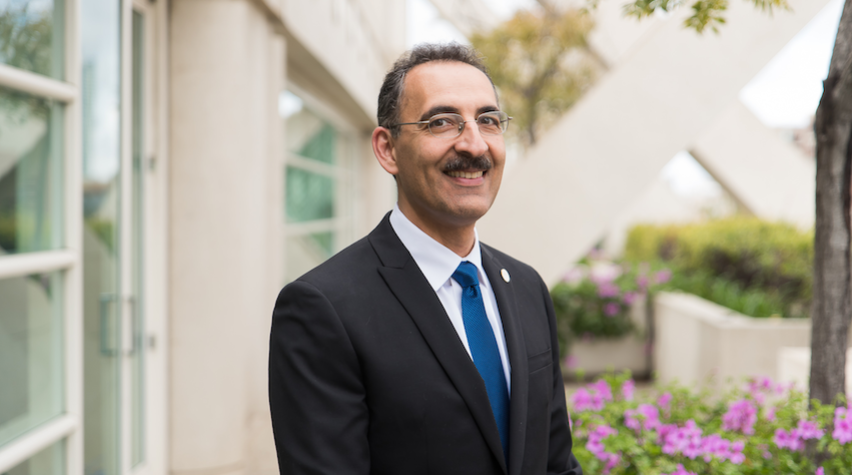
Organized by AIChE’s Society for Biological Engineering (SBE), the 2023 International Mammalian Synthetic Biology Workshop (mSBW) will be held June 22–23, 2023 in San Jose, California. 2023 mSBW brings together leaders in synthetic biology with experts from other relevant fields to highlight and inspire cutting-edge synthetic biology research, emphasizing both basic and applied science. Reserve your spot today. Funding opportunities are also available to attend this event.
We caught up with keynote speaker Farshid Guilak, Mildred B. Simon Professor of Orthopaedic Surgery at Washington University, Director of Research for the St. Louis Shriners Hospitals for Children, and co-director of the Washington University Center of Regenerative Medicine, to discuss mammalian synthetic biology, how mSBW has evolved, and what he’ll be speaking about.
For the general audience, what distinguishes mammalian synthetic biology from other areas of bioengineering?
While the field of synthetic biology has made tremendous strides in the last few decades, most previous work has been in non-mammalian systems. Mammalian synthetic biology is an exciting field that has tremendous implications, particularly for the life sciences and medical fields where we can modify and potentially reimplant cells in the body.
This is the 10th iteration of this conference. How would you say mSBW has evolved over the last 10 years? What was one of the most exciting breakthroughs?
With the advent of transformative genome engineering methods such as CRISPR, it is possible to more rapidly modify mammalian cells to develop new biological systems that don’t normally exist in nature. Also, with the development of numerous new genetic sequencing methods, we are able to deconstruct biological systems with an unprecedented level of detail, thus making it possible to redesign and reprogram them using methods of synthetic biology.
How do you envision this field solving some of the challenges in engineering and society? Where do you see this field headed over the next five years?
One important future area of the field will be in complex synthetic systems that can be used as precision therapeutics for a wide range of medical conditions. Mammalian cells will also contribute to a wide range of in-vitro bioprocesses that cannot be performed by non-mammalian systems.
What will you be talking about at the conference? What are you looking forward to hearing about?
I am very excited to meet with so many outstanding scientists in the field of mammalian synthetic biology and learn about the latest approaches in control of cell fate and behavior using synthetic gene circuits. I will be sharing our most recent work combining synthetic biology and tissue engineering to design new systems for controlling cell behavior based on mechanical signals (mechanogenetics) and cellular circadian clocks (chronogenetics) as therapeutic living implants.
What message would you like the audience to take away from this year’s mSBW?
Mammalian synthetic biology will be the source of some of the greatest scientific breakthroughs in cellular engineering and therapeutics in the next decade. With the rapid advances in next-generation sequencing and genome editing, the possibilities are endless and left only to the imagination.
About SBE
Established in 2004, the Society for Biological Engineering is a technological community for engineers and applied scientists integrating biology with engineering. Members of SBE come from a broad spectrum of industries and disciplines and share in SBE’s mission of realizing the benefits of bioprocessing, biomedical, and biomolecular applications. Learn more about SBE.


